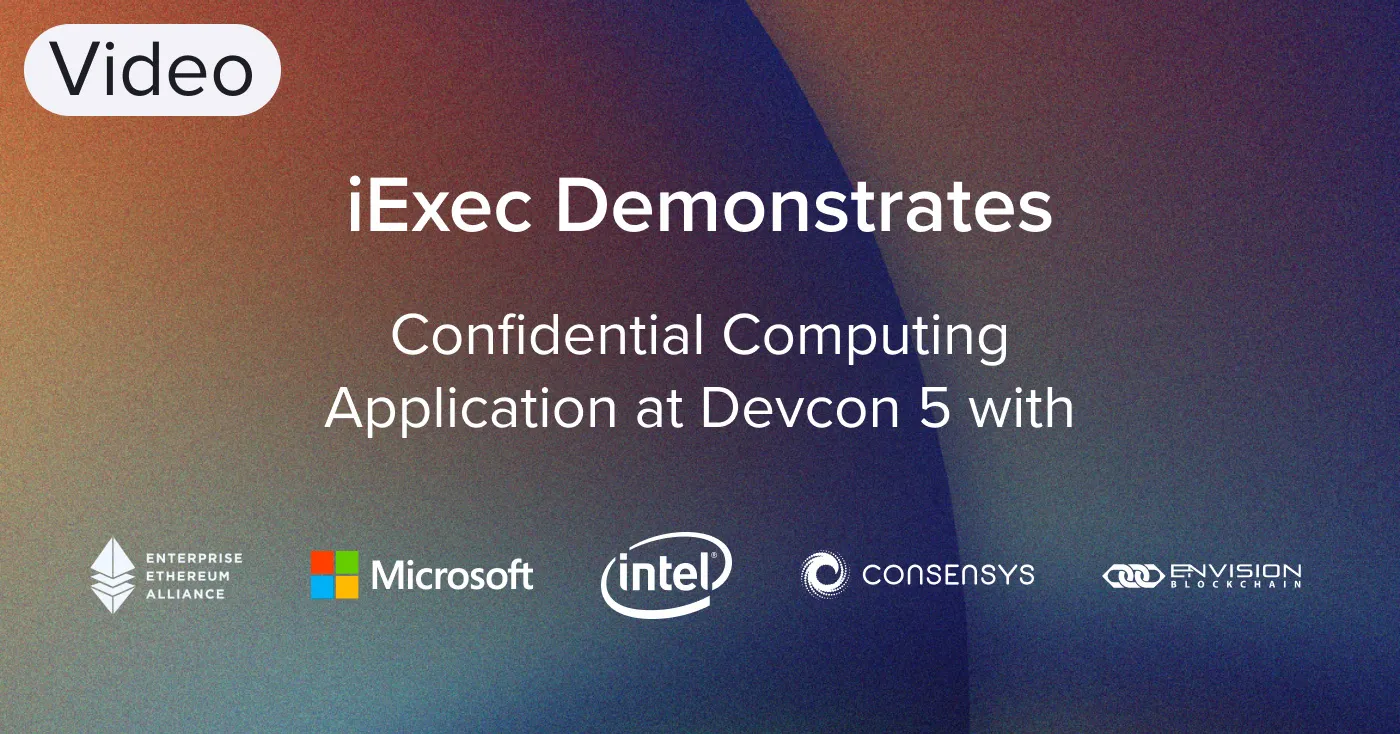
Early blockchains delivered computational trust via massive replication but had imperfect privacy and confidentiality. By adding trusted off-chain execution to a blockchain, the performance in these areas can be improved.
While lessening data load on the shared ledger, the blockchain still maintains a single authoritative registry of objects, enforces execution policies, and ensures auditability.
Today, iExec as part of the EEA Trusted Execution Task Force announced the EEA Off-Chain Trusted Compute Spec V1.1. The spec addresses how a smart contract on mainnet can offload its compute-intensive workloads to off-chain networking without compromising user experience and security. Read today’s EEA release here.
Official EEA Announcement:
This specification has been used to develop Hyperledger Avalon — the latest of the Hyperledger projects, also known as the Trusted Compute Framework (TCF), which is a ledger-independent implementation that helps developers in building the next wave of confidential computing applications.
Hyperledger Avalon is an interesting intersection of Hyperledger, EEA, and cloud service providers which brings together sponsorship from Intel, iExec, Alibaba Cloud, Baidu, BGI, Chainlink, Consensys, EEA, Espeo, IBM, Kaleido, Microsoft, Banco Santander, WiPro, Oracle, and Monax.
With TCF, developers can utilize Intel® Software Guard Extensions (Intel® SGX) to access off-chain transaction resources. This opens up the way for a wide variety of use cases. Loan systems, trusted tokens or attested oracles are examples of applications that benefit from leveraging a trusted liaison between on-chain and off-chain networks.
To prove that these specs have moved from paper exercises to implementation, five EEA members — ConsenSys (Pegasys and Kaleido), Envision Blockchain, iExec, Intel, and Microsoft — have joined forces to build a working prototype application that complies with EEA Trusted Compute Specification.
This application is an EEA trusted reward token to incentivize EEA membership to participate more in EEA activities. It will be demonstrated for the first time on October 9 in Osaka, Japan, at Devcon 5, the Ethereum Foundation’s flagship developer conference.
The achieved result is a TTF (Token Taxonomy Framework) compliant application running in Besu, an enterprise Ethereum client compliant with the latest EEA Client Specification, and hosted on an off-chain EEA-compliant Trusted Compute pool. This pool is deployed by iExec on a Microsoft Azure SGX-enabled virtual machine.
Driven by the latest EEA specification work and the Mainnet Initiative, this use case illustrates the meaningful deployments of enterprise Ethereum applications and the active contributing role played by iExec in the ecosystem.
EEA Workshop: 9 October 2019, 3:30pm to 5:30pm in B8 Theater